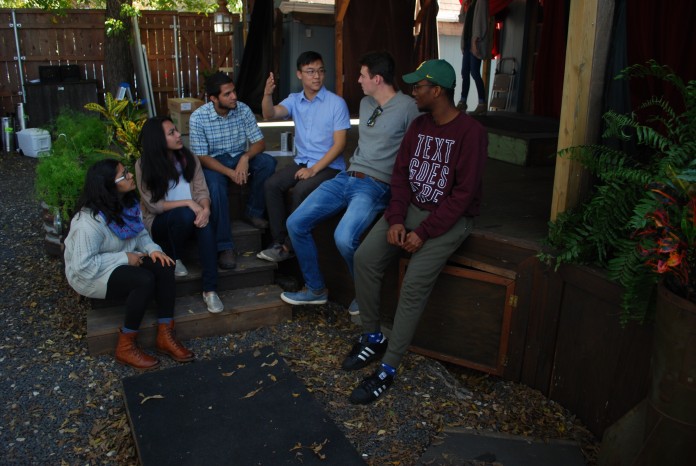Giving someone an even-numbered bunch of flowers in Russia symbolizes death.
Differences in tradition and culture in other countries are abundant, and sometimes tricky to catch onto. Baylor alumna Rachel Clark studied abroad in Egypt in the summer of 2013 and learned that even showing someone the bottom of your foot can be considered highly insulting.
“I would be wearing sandals, and [people in Cairo] would say, ‘That’s too much skin. How dare you show your toes,’” Clark said.
And it did not stop with footwear. More conservative Egyptians would make Clark tuck in her shirt, or roll down her sleeves despite the 120- degree Fahrenheit weather.
But Clark, who was evacuated when former Egyptian President Mohamed Morsi was overthrown, did not mind changing her behavior or wardrobe – it was learning how to communicate that was the most difficult.
“The biggest thing I learned was not necessarily the taboos, the do’s and the don’t’s, but the communication style,” Clark said. “Like, are they indirect? Does a long pause mean that they are angry with you or does that mean they are accepting of what you are saying?”
International Student Relations Coordinator Melanie Smith suggests students do their own research prior to traveling.
“You also have to be proactive in taking that on yourself to research and learn about the culture you are going to study in,” Smith said.
But cultural differences do not always elicit hostility. Wenzhou, China, sophomore Esther Zhao said her outlook on life changed after coming to America.
“I think if you know friends that are different than you, then it’s kind of life changing,” said Zhao, who is the president of the Baylor Chinese Students and Scholar Association.
Despite English being her second language, Zhao said she desires to fully immerse herself in new cultures. She has already traveled to Boston, San Diego and Chicago. She will also be studying abroad in Maastricht this summer through Baylor.
But Smith said for cultural differences to be accepted, rather than rejected, students have to go through “internationalization.” This means students from multiple cultures share their life experiences, cultures, and most importantly, their stories.
“Communication, culturally, on a lot of continents is through stories of family and culture. Sit down and listen to those,” Smith said.
On several occasions, Baylor has made international students and students from different religious backgrounds feel welcome. After presidential hopeful Donald Trump’s remarks on banning Muslims from entering the United States, Baylor students held a vigil in respect of their Muslim peers.
Zhao recommends for students to experience other cultures. After living in Texas, she now has plans on attending graduate school here, and to travel whenever she gets the chance.
“You get to see so much more,” Zhao said. “It’s really expensive, but it’s worth it.”
Smith said she also recommends students “reach across the aisle” if they see a student from another country.
“Your life could really be blessed by that,” Smith said.






